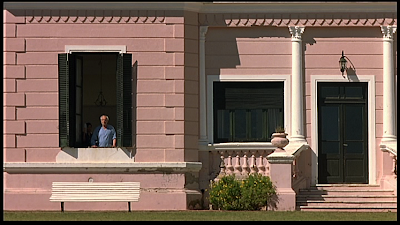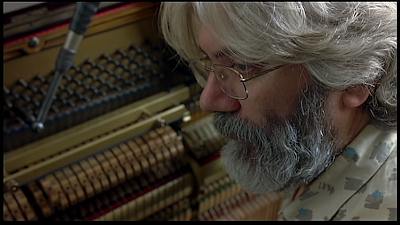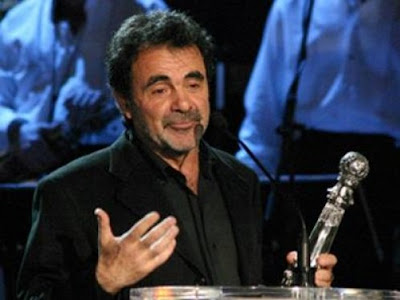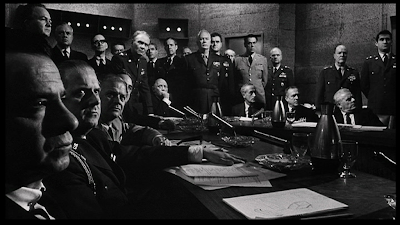 The Window (2008)
The Window (2008)
A film by Carlos Sorin
Country: Argentina
Year :2008
Run time :85 minutes
Spanish with English subtitles
4th Sept 2011;5.45pm
PERKS MINI THEATER
 The Window (2008) is a gentle masterpiece of cinema written and directed by Carlos Sorin. It is about living and dying and how, hopefully, we all can approach that last day on earth. Filmed in Argentina's Patagonia by cinematographer Julian Apezteguia with an emphasis on sunshine and landscape this little film humbly presents the final day of living of 80-year-old writer Antonio (Antonio Larreta) . This is a big day for Don Antonio. His son, a noted European pianist whom he hasn't seen in years, is coming to visit him, and the housekeepers are buzzing about preparing for the prodigal son's return.
The Window (2008) is a gentle masterpiece of cinema written and directed by Carlos Sorin. It is about living and dying and how, hopefully, we all can approach that last day on earth. Filmed in Argentina's Patagonia by cinematographer Julian Apezteguia with an emphasis on sunshine and landscape this little film humbly presents the final day of living of 80-year-old writer Antonio (Antonio Larreta) . This is a big day for Don Antonio. His son, a noted European pianist whom he hasn't seen in years, is coming to visit him, and the housekeepers are buzzing about preparing for the prodigal son's return.
In The Window the images are not heavy and portentous, but play as a background soundtrack to the sensory impressions and ambiance within the confined spaces of a man's last day on earth. Sorin's plot less film deals with the light and not the shadows, and with an airy leisure and humor that belies the melancholy and foretold destiny of a dying old man.
 Sorin infuses his film with visual landscapes both interior and exterior and deconstructs the final day from dawn to dusk with the symphony of life -- chirping birds, the wind, discordant notes from a piano tuner, even water in the pipes as someone takes a shower. Life is all around Don Antonio and Sorin lets him see and hear it all.
Sorin infuses his film with visual landscapes both interior and exterior and deconstructs the final day from dawn to dusk with the symphony of life -- chirping birds, the wind, discordant notes from a piano tuner, even water in the pipes as someone takes a shower. Life is all around Don Antonio and Sorin lets him see and hear it all.
 Employing simple camera setups, he lets the spectacular Argentine light fill the house and wash over the surrounding fields. What interests Sorin isn’t emotion, really, but process. When the processes are mundane - tuning a piano, taking Don Antonio’s blood pressure - he manages to make them engrossing. And when the process isn’t at all mundane - the surrendering of life - Sorin handles it with impressive circumspection.
Employing simple camera setups, he lets the spectacular Argentine light fill the house and wash over the surrounding fields. What interests Sorin isn’t emotion, really, but process. When the processes are mundane - tuning a piano, taking Don Antonio’s blood pressure - he manages to make them engrossing. And when the process isn’t at all mundane - the surrendering of life - Sorin handles it with impressive circumspection.
 Death for Don Antonio is a reluctantly willing journey of transcendence where cinematic images (a key, a 40-year-old Champagne bottle, a first edition, a toy soldier) become the remaining sparks of precious remaining hours of life. Significantly, at the end of the film, when the old man dies, the last image and sound is of a scratchy and faded film running to its end as if projected through an old camera.
Death for Don Antonio is a reluctantly willing journey of transcendence where cinematic images (a key, a 40-year-old Champagne bottle, a first edition, a toy soldier) become the remaining sparks of precious remaining hours of life. Significantly, at the end of the film, when the old man dies, the last image and sound is of a scratchy and faded film running to its end as if projected through an old camera.

 Carlos Sorin
Carlos Sorin
Carlos Sorin is an Argentinian film director, screenplay writer, cinematographer, and film producer. At the age of six, Carlos Sorín got a hand-crank projector with comic strip tapes made of paper. In those times television was not very common, and instantly, from the moment when he switched off the lights, closed the windows and projected the images onto a sheet hung on the wall, he was sure that cinema was going to be his future.
When he was 8 years old, he got another projector capable of showing 16mm movies, and one year later, he received a motorized projector. At the age of 14 he worked with the first camera, a 16mm rope-Kodak. Later on, as the years went by, the motorized Bolex, the Arriflex, Aatons and finally the 4K digital cameras arrived. For him, there was no doubt that technology was the way of entrance into cinema. When he left the film university Escuela de Cine de la Universidad de La Plata he became camera assistant, and only a little later director of photography. After ten years in this job, he successfully became a director of commercials—a job he exercised for too many years.
In 1986, he made his first theatrical motion picture, La Pelicula del Rey (A King and his Movie), which was awarded the Silver Lion at the Venice Film Festival, and the Goya Award of the Spanish Film Academy for the Best Foreign Film, among many other awards. Encouraged by these accolades, he rapidly launched himself into the making of his second movie, Eversmile New Jersey, a film that became an experience of failure. After this failure, he began directing commercials again.
In 2002, when he was ready to settle an open personal account with cinema, he directed and produced Historias Mínimas (Intimate Stories). The film won an innumerable series of international awards (among others the Special Prize of the Jury at San Sebastian 2002 and 8 Silver Condors) and opened the door again to other opportunities.
At that point in time, he finally gave up his career making commercials in order to concentrate on directing dry cinema. In 2004, he directed Bombon, El Perro (Bombon, the Dog) (FIPRESCI award in San Sebastian 2004) – a worldwide theatrical success – and in 2006 El Camino de San Diego (The Road to San Diego). In 2008 he directed The Window.
When he was 8 years old, he got another projector capable of showing 16mm movies, and one year later, he received a motorized projector. At the age of 14 he worked with the first camera, a 16mm rope-Kodak. Later on, as the years went by, the motorized Bolex, the Arriflex, Aatons and finally the 4K digital cameras arrived. For him, there was no doubt that technology was the way of entrance into cinema. When he left the film university Escuela de Cine de la Universidad de La Plata he became camera assistant, and only a little later director of photography. After ten years in this job, he successfully became a director of commercials—a job he exercised for too many years.
In 1986, he made his first theatrical motion picture, La Pelicula del Rey (A King and his Movie), which was awarded the Silver Lion at the Venice Film Festival, and the Goya Award of the Spanish Film Academy for the Best Foreign Film, among many other awards. Encouraged by these accolades, he rapidly launched himself into the making of his second movie, Eversmile New Jersey, a film that became an experience of failure. After this failure, he began directing commercials again.
In 2002, when he was ready to settle an open personal account with cinema, he directed and produced Historias Mínimas (Intimate Stories). The film won an innumerable series of international awards (among others the Special Prize of the Jury at San Sebastian 2002 and 8 Silver Condors) and opened the door again to other opportunities.
At that point in time, he finally gave up his career making commercials in order to concentrate on directing dry cinema. In 2004, he directed Bombon, El Perro (Bombon, the Dog) (FIPRESCI award in San Sebastian 2004) – a worldwide theatrical success – and in 2006 El Camino de San Diego (The Road to San Diego). In 2008 he directed The Window.








